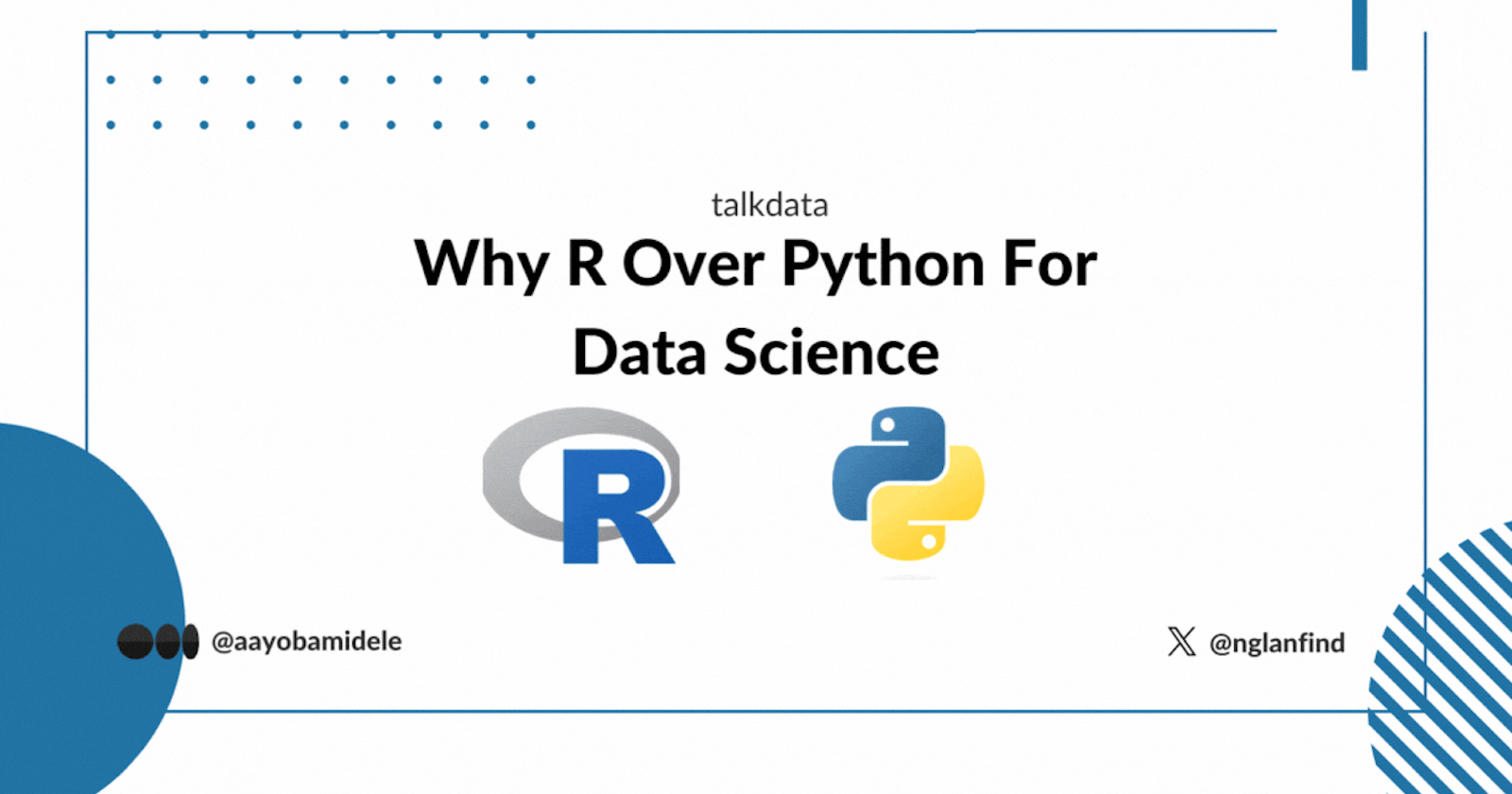Alright, I admit, this cover page is a bit misleading. Honestly, my goal is to persuade you to appreciate the simplicity of beginning your data science journey with R in your programming toolbox. Although this post is more tailored to absolute beginners seeking to break into data science and feeling confused about the various programming technologies available, which one to start with, what statistical concepts to understand, and so on, I am also pleased to convince more experienced data scientists to explore R as a tool to advance their data science journey.
Contrary to the title, this post does not aim to determine whether R or Python is superior. In reality, as a Data Scientist, you will likely use both at different points in your career. They are more complementary than opposed and independent of each other. However, we should quickly consider all the reasons why R is an easier tool for breaking into the field of Data Science, along with a few other perks that come with it.
Great Learning Curve
This has to be my favorite thing about R over Python. As a beginner, you want to learn by doing, practicing, and working on projects. R has an easier and more intuitive syntax than any language I have used. It's almost like human language, which is great because, once you grasp what the underlying concepts (say an inbuilt function), it quickly sticks and you can easily recall it just like any natural human language. Aside from its simple syntax, R is also easy to install and get started with. I will create a follow-up post on how to install R. The advantage of starting your journey with a language like R is that you learn the underlying statistical concepts and an algorithmic way of thinking more quickly. Then, you can apply your learned skills in other languages as you progress.
Data Visualization
You will soon find that a significant part of Data Science is Data Visualizations. You will be plotting charts to better visualize relationships between variables and you want to be able to get a hang of this crucial skill as early as you start to explore your journey. R is your “guy”, asides from the fact that R has got the most wholistic built-in data visualization engine - Base R, It also has a robust visualization package second to none in my opinion - ggplot2. Ggplot2 is an excellent tool that you'll encounter as you delve deeper into R. It allows you to swiftly create professional and aesthetically pleasing visualizations with simple syntax.
Data Manipulation
An important part of your day-to-day data life would be Data Manipulation and Wrangling. It simply just involves cleaning, transforming and reshaping raw data into a form suitable for analysis or modelling. R provides a robust system for data manipulation and wrangling. Among many reasons are its easy syntax, excellent primitive data structures, and a rich ecosystem of functions that can help you accomplish a lot in a short time. From experience, I would say its easier to get started with dataframes in R for instance than any other languages available.
Availability of Statistical Packages
Let's face it, Data Science is really all about learning to implement statistical concepts, and this is something you will be doing heavily at least in the very early stages of your journey. R was specifically made for statistical analysis and it provides a comprehensive environment for statistical modeling, hypothesis testing, and data exploration. The Comprehensive R Archive Network (CRAN) hosts a vast collection of specialized statistical packages, making it a go-to choice for researchers requiring a broad range of statistical methods. There are inbuilt data packages that are easy to load, allowing you to start practicing these statistical concepts immediately. R provides the ideal holistic environment for learning.
Many give up on their first attempt largely due to the complexities like navigating how to get started, what tools to use, what is the big picture and so on. It is no different with Data Science. I happened to start with Python, struggled a bit before grasping the overall picture. I eventually took a course on Data Science with the most amazing Professor who made me appreciate the end game of Data Science and the inner workings of the underlying concepts. R provided me simplistic environment rid of distractions and allowed me to focus on the theoretical concepts which was easy to transfer to whichever language I preferred having grasped it. If you seek a dedicated and straightforward environment, characterized by a strong community, user-friendly syntax, minimal noise, and a direct approach to mastering data science concepts, R is an excellent choice.
If you found value in this in any way, please like and share with friends who would benefit from this. Don’t forget to let me know what you think in the comment section. See you in the next post

